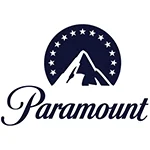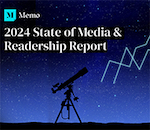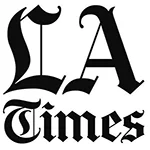Committee to Protect Journalists today ripped the Obama administration’s policy of mass surveillance as a threat to freedom of the press worldwide.
In adding cyberspace as a category on its annual “risk list,” CPJ noted that documents leaked by Edward Snowden showed that the National Security Agency hacked into the private communications of Arab satellite broadcaster Al-Jazeera.
The spy agency determined the AJ eavesdropping operation was a “notable success.”
CPJ said an examination of documents stolen by Snowden shows “wide-ranging surveillance by the U.S. and its allies (specially Britain), a practice that presents a clear threat to global Internet privacy and therefore freedom of the press worldwide,” according to its report penned by Maya Taal, who has handled PR for CPJ and Human Rights Watch.
CPJ maintains that digital communications is essential to newsgathering and the privacy of journos previously was protected due to the decentralization of the Internet.
The U.S. surveillance practices, according to CPJ, undermine America’s global leadership in free expression and openness, especially “when it comes to battling efforts by repressive countries like China and Iran to restrict the Internet.
CPJ believes the government’s collection of “metadata” gives authorities the means to “map a journalist’s contacts and activity via transactional records such as time/date of phone calls, numbers called and location.”
Press Freedom Set Back in Egypt and Russia
The Egyptian press under now ousted president Mohamed Morsi and the successive military junta has been increasingly muzzled.
CPJ counted 72 cases of intimidation of Muslim Brotherhood media critics while Morsi was in command from Aug. 2012 through July.
The harassment situation flipped against Brotherhood supporters once the military seized control.
Outlets such as CNN and Al-Jazeera were deemed by the regime to be unsympathetic to its goals.
Under military rule, 11 news outlets were raided, 44 reporters jailed, five killed and 30 assaulted.
Russia, with the onset of the 2014 Olympics, issued draconian laws and prosecuted critics, “resulting in the most oppressive and anti-Western climate since the Cold War,” according to the watchdog.
Russian journalists told CPJ they’re afraid to gather information from groups not condoned by the Putin regime.
Two Russian reporters were killed in 2013, heightening the climate of fear. There remain unsolved murders of 32 journalists
Syria, Vietnam, Turkey, Bangladesh, Liberia, Ecuador and Zambia are other countries that become riskier for journalists during the past year.


 Trump Media & Technology Group today reported a $58.2M net loss on $4.1M in 2023 revenues, a disclosure that drove its stock price down 22.6 percent to $47.96.
Trump Media & Technology Group today reported a $58.2M net loss on $4.1M in 2023 revenues, a disclosure that drove its stock price down 22.6 percent to $47.96. Barry Pollack, an attorney at Wall Street’s Harris St. Laurent & Wechsler, has registered Julian Assange as a client with the Justice Dept. “out of an abundance of caution.”
Barry Pollack, an attorney at Wall Street’s Harris St. Laurent & Wechsler, has registered Julian Assange as a client with the Justice Dept. “out of an abundance of caution.” Paramount Global to slash 800 jobs in what chief executive Bob Bakish calls part of an effort to “return the company to earnings growth"... Rolling Stone editor-in-chief Noah Shachtman is exiting at the end of the month due to disagreements with chief executive Gus Wenner over the direction the magazine is taking... The New York Times broke the $1 billion barrier in annual revenue from digital subscriptions in 2023... Press Forward is investing more than $500 million to strengthen local newsrooms.
Paramount Global to slash 800 jobs in what chief executive Bob Bakish calls part of an effort to “return the company to earnings growth"... Rolling Stone editor-in-chief Noah Shachtman is exiting at the end of the month due to disagreements with chief executive Gus Wenner over the direction the magazine is taking... The New York Times broke the $1 billion barrier in annual revenue from digital subscriptions in 2023... Press Forward is investing more than $500 million to strengthen local newsrooms. The majority of news articles are read within the first three days of publication, according to a recent report.
The majority of news articles are read within the first three days of publication, according to a recent report. The Los Angeles Times gives pink slips to 115 people or 20 percent of its newsroom staff... TIME is also laying off about 30 employees, which is approximately 15 percent of its editorial staff... The Baltimore Banner, which was launched by Stewart Bainum in 2022 after he failed to buy the Baltimore Sun, added 500 subscribers per day in the three days following Sinclair Broadcast Group's deal to purchase the Sun.
The Los Angeles Times gives pink slips to 115 people or 20 percent of its newsroom staff... TIME is also laying off about 30 employees, which is approximately 15 percent of its editorial staff... The Baltimore Banner, which was launched by Stewart Bainum in 2022 after he failed to buy the Baltimore Sun, added 500 subscribers per day in the three days following Sinclair Broadcast Group's deal to purchase the Sun.


 Have a comment? Send it to
Have a comment? Send it to 
No comments have been submitted for this story yet.